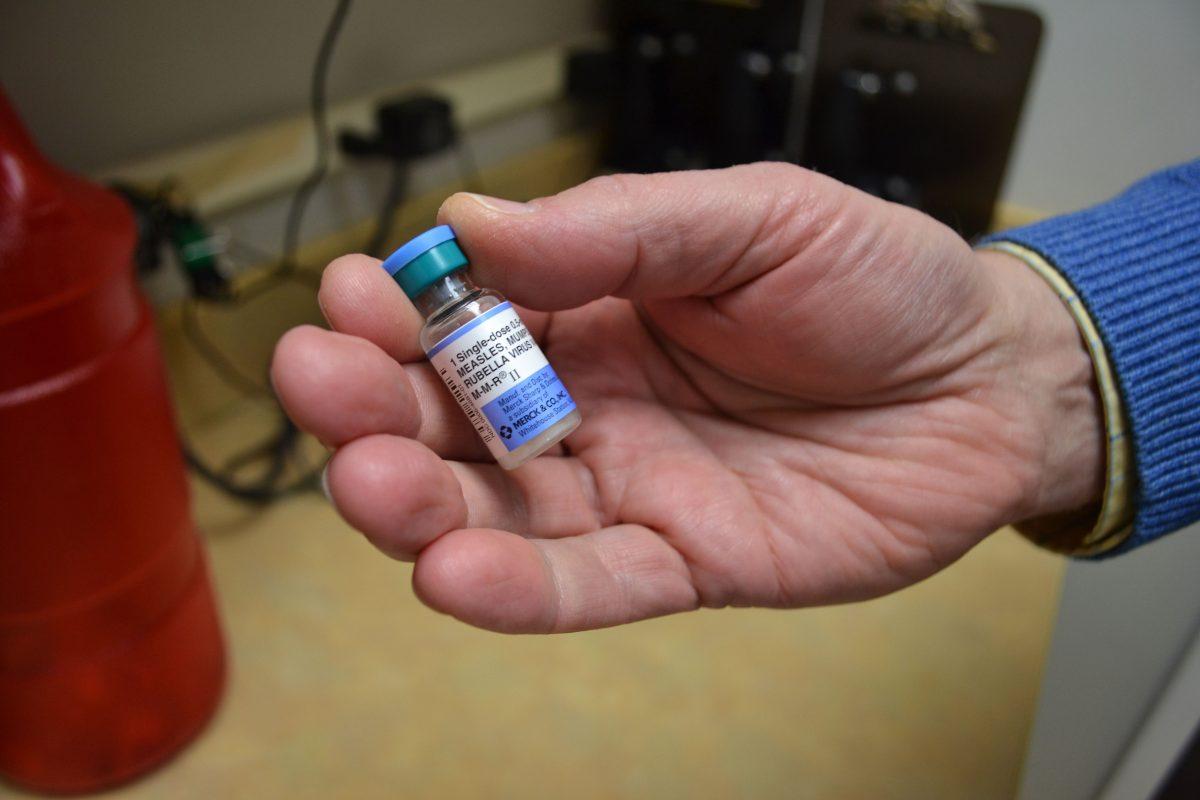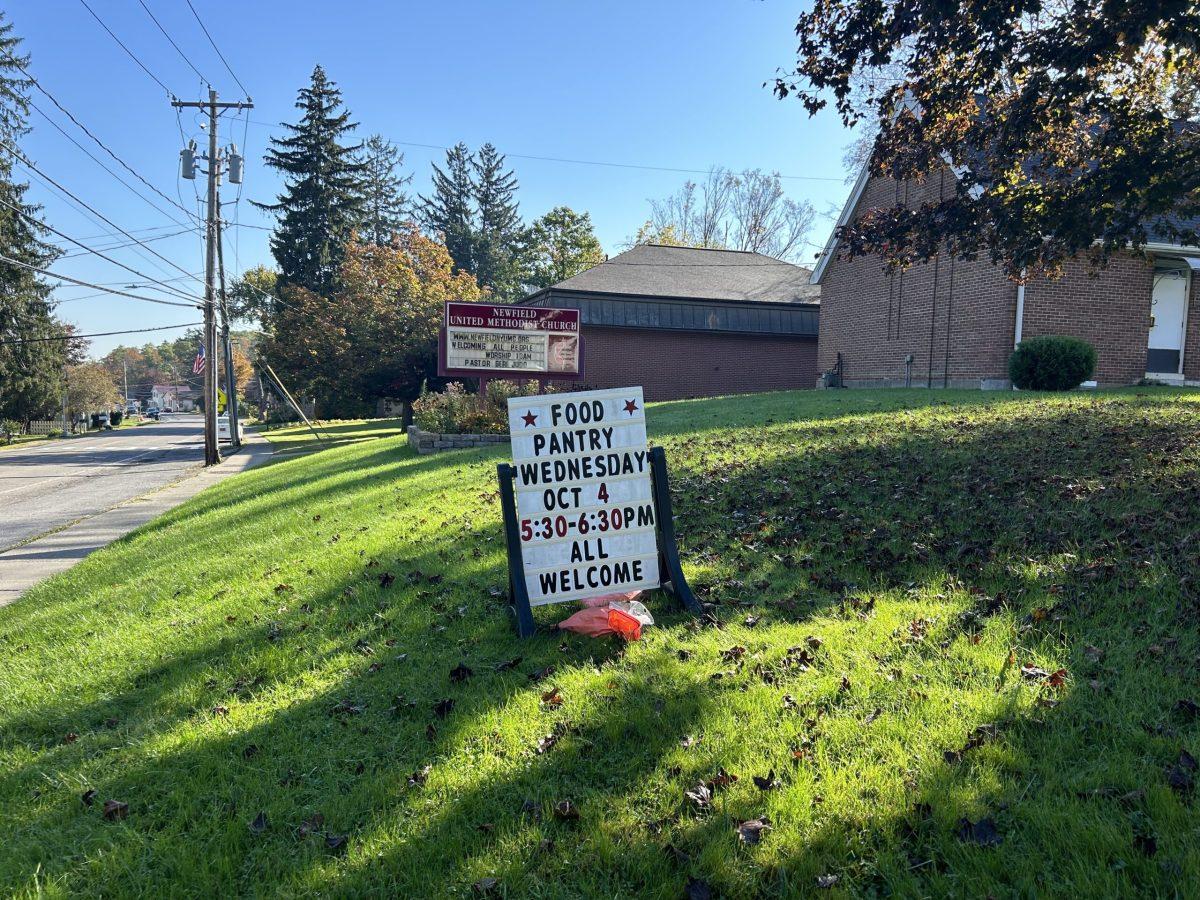Tompkins County has a 95 percent immunization rate. However, recent data shows that six Ithaca schools have a rate lower than this average, the lowest being 65.1 percent.
According to state data from the 2012-2013 academic year, which is the most recent data, these schools are Ithaca Waldorf School, 65.1 percent, Fall Creek Elementary School, 84 percent, Alternative Community School, 83.4 percent, New Roots Charter School, 87 percent, Cascadilla Prep, 85.9 percent and Elizabeth Ann Clune Montessori School, 89.2 percent.
A 95 percent immunization rate is the necessary percentage to protect the community from a measles outbreak, such as that in California, according to Theresa Lyzcko, Director of Public Information and the Health Promotion Program for the Tompkins County Department of Health.
“If we’re talking about measles now, the critical point is a 95 percent vaccination rate to protect the public,” Lyzcko said. “And measles is very contagious. It spreads easily. So what’s needed to create what is called ‘herd immunity,’ is a 95 percent vaccination rate.”
In order to prevent the spread of infectious diseases like measles, state residents are encouraged to follow the New York State Department of Health immunization schedule, which outlines the immunization recommendations at each age of childhood.
While medical professionals are advocating for immunization, some parents choose not to vaccinate their children.
An Ithaca mother of unvaccinated children who has chosen to remain anonymous said she has chosen not to vaccinate because of the ingredients of the immunizations and an observed increase in childhood developmental problems.
“I’ve been a preschool teacher for nearly 20 years and I’ve seen children get sicker and sicker throughout my tenure,” she said. “I’ve also observed that unvaccinated children are healthier, more perceptive, and less prone to chronic illnesses.”
Dr. Jeffrey Snedeker, a physician at Northeast Pediatrics and an expert on infectious diseases, said parents of his patients most commonly show concern over alleged harmful ingredients, damage to immunity and side effects, such as the development of autism. These concerns, he said, are based on false information.
“This is just another example of something that is totally false, but people continue to believe just because people keep talking about it and talking about it, and as long as that buzz persists people believe that there must be something to it,” Snedeker said. “Even though there isn’t.”
The myth linking the MMR (measles, mumps and rubella) vaccine and autism, for example, was a claim made by a study published Andrew Wakefield in 1998. According to the National Center for Biotechnology Information, the study was revoked in 2010 along with Wakefield’s medical license.
The majority of parents consent to following the recommended vaccination guidelines. Megan Powers, of Ithaca, has chosen to vaccinate her 3-year-old daughter.
“I believe vaccines’ safety and effectiveness has been demonstrated, especially over the last few years,” Powers said. “The side effects are very small, and the risk of getting seriously hurt, sick, or even dying from one of these diseases are fairly high. There is a clear choice.”
Anti-vaccination organizations were not willing to comment on their position. Jeffry Aufderheide, founder of VacTruth.com, declined to make a statement due to what he considered is a one-sided type of media coverage on immunization.
Ingri Cassel, of Vaccination Liberation, requested the reporter to fill out a survey before she could decide whether she would consent to make comment.
“The reason for this is that I need to make sure we are closer to an understanding of the real issues we all face with this latest witch hunt,” Cassel said in an email.
Aside from medical conditions and religious exemptions, parents choose not to vaccinate due to the circulation of anecdotes, rather than medical studies, Snedeker said.
“I think that gets very deep into the heart of human nature,” Dr. Snedeker said. “I don’t honestly know what it is, but I think stories carry a lot a weight. And I think it’s one of the reasons why the anti-vaccine movement has had so much potency. Because it isn’t based on data. It’s based on stories.”
There is also a psychological element to why parents choose not to vaccinate, he said.
“There is something fundamentally very different about a harm coming from a vaccine than a harm coming from an illness,” Dr. Snedeker said. “When a parent consents for a child to get a shot, it’s a conscious decision that they made for something to be put in their child. And even the tiniest possibility that something bad could happen because of that strikes terror into the heart of parents.”
The anonymous mother said she would like to keep the right to choose what is best for her child’s body.
“The debate is far more intense than it needs to be,” she said. “We have rights that should not be taken from us or our children because of fear. The state and the federal government have no standing to tell us what must be injected into our bodies.”
Barbara Fisher is the president of the National Vaccination Information Center, which works to present information regarding the benefits and risks of immunization, and advocates for parental consent to vaccinate. She said that it is not the clash of opinion that is the problem, but rather a problem of individual rights.
“I think that the current issue…has to do with whether or not, in America, we’re going to have the rights to make voluntary vaccination decisions for ourselves and our children and not be punished by government for the decision that we make if it doesn’t comply with the government vaccine policies,” Fisher said.
According to the Center for Disease Control and Prevention, immunization aids in the elimination of infectious diseases such as smallpox. Dr. Snedeker said that polio and measles could be eradicated with the decrease of misinformation and the increase in vaccination rates.
“There has not been a case of smallpox in the world since 1980, and it was eradicated because of vaccination,” Snedeker said. “No other disease that we know of has been eradicated other than that one. It should be possible to do it for polio. It should be possible to do it for measles, but we haven’t quite gotten there yet.”
The United States Surgeon General, on multiple, occasions has called for parents to vaccinate their children in order to prevent national outbreaks of preventable diseases.
While the discussion involves national debate, it is not a matter of contention, Lyzcko said.
“Public health doesn’t consider it a controversy,” Lyzcko said. “There’s a lot of science behind vaccination and certainly immunization and vaccination has been one of the greatest public health achievements of the last century. It’s saved many, many lives.”
Tompkins County has previously seen increases in pertussis, or whooping cough, with 38 cases reported in 2006. With a spike of 13 cases in 2011 and 9 in 2012, the Tompkins County Department of Health encouraged parents to vaccinate their children in order to protect the community.
With the measles outbreak in the national spotlight, Lyzcko and Snedeker both hope to use this spike in public dialogue to present the facts on immunization.
“I think that in some ways it’s an opportunity to educate people about immunization,” Lyzcko said. “And for those who are hesitant, it’s an opportunity to work with them about their hesitancies.”
The Tompkins County Department of Health hopes that public education will help prevent an outbreak such as that in California. For more information on county immunization guidelines, visit the health department website.




















